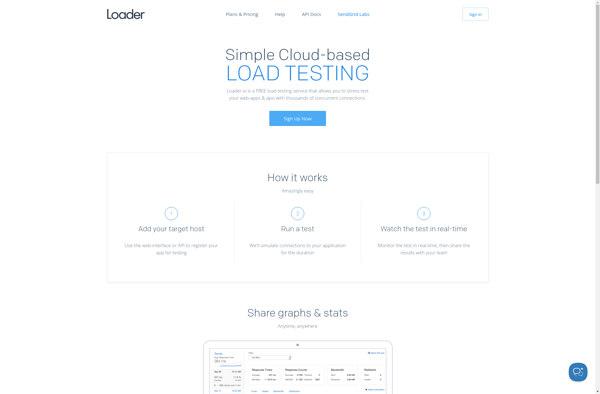Description: AppPerfect Load Test is a load and performance testing tool for web and mobile applications. It allows you to simulate hundreds or thousands of concurrent users to test application performance and behavior under load. Useful for capacity planning, scalability testing, and identifying bottlenecks.
Type: Open Source Test Automation Framework
Founded: 2011
Primary Use: Mobile app testing automation
Supported Platforms: iOS, Android, Windows
Description: Loader.io is a cloud-based load testing service that allows developers to stress test their web applications and APIs. It can simulate thousands of concurrent users to identify performance issues under load.
Type: Cloud-based Test Automation Platform
Founded: 2015
Primary Use: Web, mobile, and API testing
Supported Platforms: Web, iOS, Android, API

